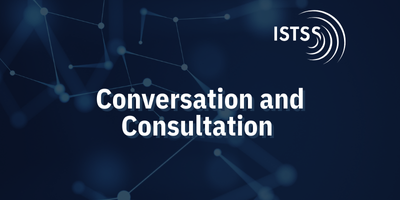Bringing Together Clinicians and Researchers From Around the World to Advocate for the Field of Traumatic Stress.
Healing Trauma Together
The International Society for Traumatic Stress Studies is dedicated to sharing information about the effects of trauma and the discovery and dissemination of knowledge about policy, program and service initiatives that seek to reduce traumatic stressors and their immediate and long-term consequences. ISTSS is an international interdisciplinary professional organization that promotes advancement and exchange of knowledge about traumatic stress.
Registration is Now Open!
Join us in Boston on September 25-28, 2024 for the ISTSS 40th Annual Meeting. The ISTSS Annual Meeting provides a forum for the dissemination of theoretical work, scientific research, and evidence-based clinical approaches in traumatic stress studies.
Conversations and Consultations
Our Conversations and Consultation series is a members-only series that provides members with the opportunity to exchange valuable insight and advice with subject-matter experts, mentors, and/or colleagues in the trauma field. Each session is facilitated by one or more experts and presented to ISTSS members as a free membership benefit. Check out past sessions on industry careers, part-time private practice, and our most recent session on international collaboration.
Grow Your Professional Network by Volunteering with ISTSS
Volunteers play an integral role in ISTSS' day-to-day activities and form a broad professional network. Interested in adding an ISTSS volunteer position to your CV?
Student perspectives: Treatment considerations for the internal experience of minority stress and trauma – Abigail Dopico, MS & Luca Hartman, MS
Evidence has overwhelmingly shown that those who identify with marginalized groups in society may experience mental health-related issues at heightened frequency and with greater symptomatology. This is attributed to minority stress theory, which highlights the additional everyday stressors (such as microaggressions) that minority populations experience (Singh, 2020). Furthermore, intersectionality, which refers to the systems at play in marginalization wherein an individual may have multiple minoritized identities (PettyJohn et al., 2020), lays the framework for the power and privilege an individual is afforded based on their relative position of status in society (PettyJohn et al., 2020).
Grief-enhanced trauma-focused evaluation and management for underserved at-risk adolescents – Naser Ahmadi, MD, PhD, Child Trauma SIG Chair
The increasing prevalence of posttraumatic stress disorder (PTSD), especially during and after COVID-19, is a major public health crisis in the U.S., with a 16-25% prevalence of PTSD in youth (Murata et al., 2021). PTSD is associated with increased neurovascular inflammation, suicidality, adulthood mental health disorders, and major adverse life events (Ahmadi et al., 2020; Ahmadi et al., 2018). There has been a significant increase in the prevalence of PTSD and emergency room visits due to PTSD-related suicidality (Ahmadi et al., 2022; O'Rourke et al., 2023). Increased rates of suicidality in youth have been documented, escalating from 14.1% in 2016 to 30.5% in 2021, the peak of the COVID-19 pandemic in California, for example (Lund et al., 2023). Childhood PTSD and related suicidality are a significant public health problem with serious health consequences to children, with an estimated public health cost of $103 billion annually (Ahmadi et al., 2018; Dolan & Mace, 2006; Gill et al., 2017; Oliveira et al., 2019). The lack of grief-enhanced trauma-informed early screening for PTSD and prolonged grief disorder (PGD) resulted in many individuals with PTSD going undiagnosed and not receiving early interventions.
Interested in serving as a reviewer for NIMH? – NULL
The NIMH is interested in expanding the pool of scientists that we engage to review applications submitted to our Institute. We are especially interested in including scientists whose participation can help to enhance diverse perspectives on our review panels and who represent a range of mental health research expertise.



